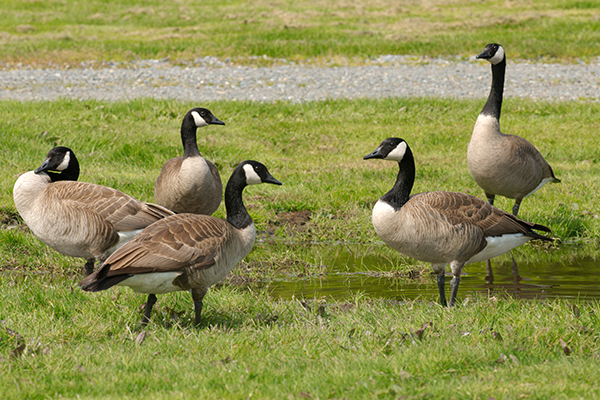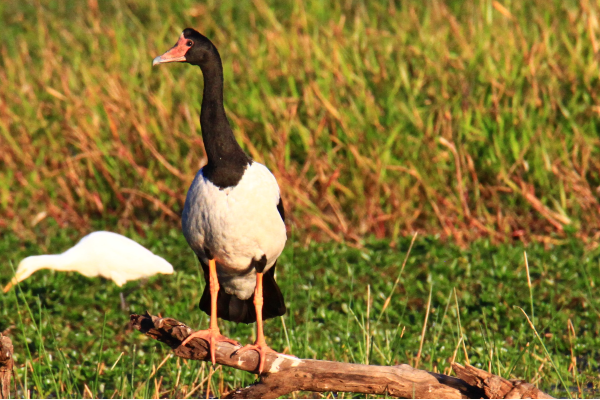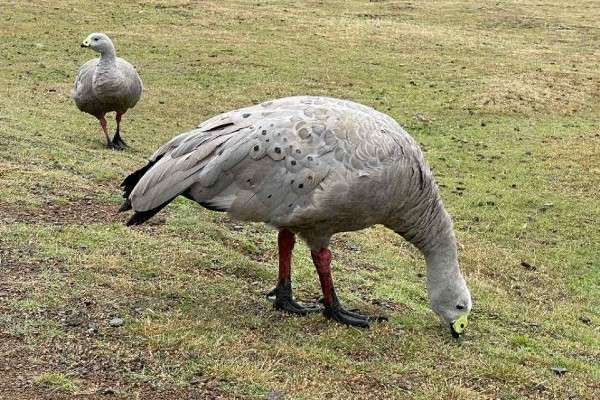Canada goose
Background
The Canada goose is native to North America and occasionally on migration reaches northern Europe. It is an invasive species that has become established in many countries, including New Zealand.
In Australia, the Canada goose is kept in captivity as an exotic waterfowl species. It has on occasion been found in the wild in some states. These birds have come from both captive populations which have escaped, and birds which have flown over from New Zealand.
The Canada goose is not known to be found in the wild in South Australia. It is illegal to release Canada geese in South Australia under the Landscape South Australia Act 2019.
Impacts
Canada geese are a serious pest bird that:
- damage crops
- compete with native bird species
- cause bird strikes at airports.
Identification
The native magpie goose and native Cape Barren goose are sometimes mistaken for the Canada goose.
You can compare the differences below:
Canada goose
The Canada goose is a medium to large size bird 55–100 cm in length, with a wingspan of 122–183 cm. It is brown and white with a conspicuous white patch on the cheeks and chin and a long black neck and head. The bill, tail, legs and feet are also black.
Magpie goose
The Magpie goose has a long black neck and black head that features a bump on the forehead that grows larger with age and naked red skin on the face. The white body and shoulders contrast with the black wings and tail. Its legs and feet are orange.
More information
Reporting Canada geese
The Canada goose has not yet become established in South Australia. To make sure this doesn’t happen report all suspected sightings.



